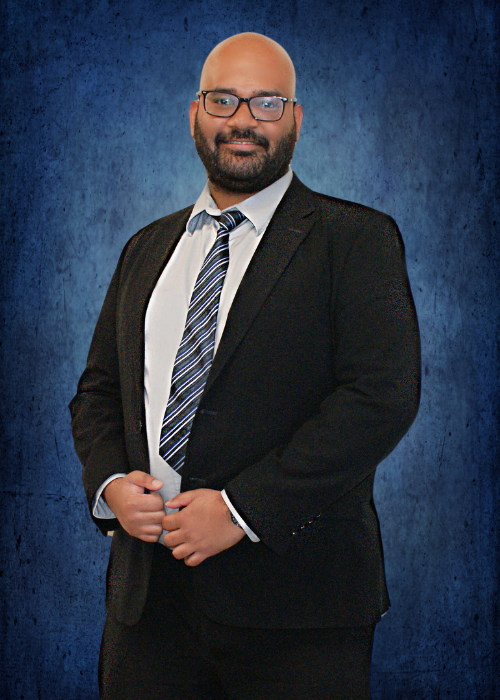Domestic violence can have devastating effects on survivors, especially when they are immigrants facing uncertainty about their legal status in the United States. The Violence Against Women Act (VAWA) plays a crucial role in providing protection and support to survivors of domestic violence, including in immigration cases. VAWA safeguards survivors and empowers them to seek legal recourse for their immigration status.
Understanding VAWA and Its Immigration Provisions
The Violence Against Women Act (VAWA) provides a legal framework that specifically addresses the unique challenges faced by survivors of domestic abuse in immigration cases. This vital piece of legislation supports survivors in their pursuit of legal and permanent residency in the United States without relying on their abuser.
Legal Framework Established by VAWA for Survivors
The U.S. Congress enacted VAWA in 1994, providing legal protection to survivors of domestic violence. The act recognizes the intersection of domestic violence and immigration, acknowledging the need for specific provisions to assist survivors. VAWA allows, under certain conditions, individuals who have been abused by a U.S. citizen or a Legal Permanent Resident (LPR) spouse or parent to self-petition for a green card, irrespective of their current immigration status. This effectively creates a path to escape from abusive relationships without fear of deportation or retaliation from their abuser.
Eligibility Criteria for Survivors Seeking Protection under VAWA
To qualify for protections under VAWA, survivors must meet certain criteria. Firstly, the abuser must be a U.S. citizen or an LPR. Secondly, the applicant must prove they have endured battery or extreme cruelty by the abuser. This includes physical violence or threats, sexual abuse or exploitation, and various forms of control such as isolation, intimidation, or economic abuse.
Applicants must also exhibit good moral character, demonstrate they have been living with the abuser in the United States, and prove that their marriage (if applicable) was in good faith, not solely for immigration benefits.
Eligibility for VAWA is complex and situational. It is strongly advised for survivors to seek the assistance of a legal professional experienced in VAWA-related immigration matters to successfully navigate this legal pathway.
The Impact of VAWA on Immigration Applications
The Violence Against Women Act fundamentally changes immigration applications for survivors of domestic violence. One of its most powerful provisions allows survivors to self-petition for legal permanent residency or a green card, giving the survivor control over their immigration status and not having it tied to their abuser.
VAWA and Self-Petitioning for Lawful Permanent Residency
Under ordinary circumstances, an individual typically gets their green card through a family member who’s a US citizen or Legal Permanent Resident. However, VAWA changes the rules for survivors of domestic violence. The act allows eligible victims to self-petition for a green card without the knowledge or involvement of their abuser, thereby providing a pathway to independence.
This provision is crucial for survivors, who often find themselves trapped in abusive relationships due to immigration concerns. The self-petition process, while empowering, can be complex. Therefore, it may be helpful to work with an experienced VAWA attorney who understands the intricacies of VAWA and can guide the survivor through the immigration process.
Applying Under VAWA: Process and Requirements
The process of applying for a green card under VAWA involves filling out and submitting a Form I-360, Petition for Amerasian, Widow(er), or Special Immigrant. The application must contain all the necessary documentation to prove the eligibility criteria outlined in the previous section, such as evidence of abuse and the relationship with the abuser.
It’s also essential to note that there’s no application fee for a VAWA self-petition. Once the U.S. Citizenship and Immigration Services (USCIS) approves the self-petition, the survivor can apply for a green card.
Confidentiality and Protection for Applicants
VAWA recognizes the critical need for confidentiality to protect survivors from potential backlash from their abusers.
Safeguarding the Applicant’s Information through Confidentiality
Under VAWA, it’s illegal for the United States Citizenship and Immigration Services (USCIS) to disclose any information relating to the filing of a VAWA self-petition. The confidentiality provision prevents an abuser from using immigration processes as a form of control or retaliation.
Protective Measures During the Application Process
VAWA has robust provisions to ensure the safety of applicants throughout the process. This includes the use of secure mailing addresses, the confidentiality of interviews, and the careful handling of evidence to prevent the abuser from discovering the application.
Challenges and Potential Barriers for Survivors
Despite the protections offered by VAWA, survivors may face challenges when applying for immigration relief under the Act. These can range from gathering evidence while maintaining safety to addressing issues of language barriers or limited financial resources.
To overcome potential barriers, survivors can seek support from legal, social, and advocacy services that specialize in domestic violence and immigration issues. These organizations can aid in gathering evidence, preparing the application, and providing the necessary emotional and financial support.
Make Your VAWA Story a Success Story
Numerous survivors have been able to secure their independence and safety through VAWA. These success stories serve as a source of hope and encouragement for others in similar situations, showcasing the significant difference that VAWA can make in a survivor’s life. If you require legal advice related to VAWA and immigration, call MC Law Group at (215) 496-0690.



